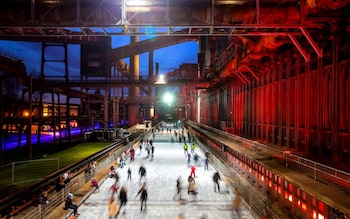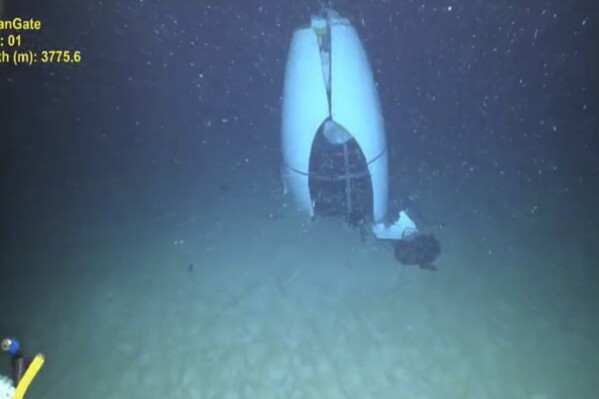
Volkswagen workers warned the company against making a “historic mistake” this week as bosses prepare to enter talks with union leaders over one of the biggest shake-ups in its 87-year history.
It is not a usual round of negotiations over pay and conditions: Volkswagen is considering the closure of factories in Germany, a first for the carmaker in its home country.
It is the latest flashpoint in the economic crisis engulfing Germany and the wider European manufacturing industry.
The slump is so severe that the European Central Bank has raised the prospect that the Continent may have to radically shift its focus, abandoning swathes of uneconomical manufacturing and embracing services instead, and particularly booming sectors such as tourism.
It highlighted the threat to factories from cheap Chinese goods flooding world markets, undercutting those made in Germany, which it said ultimately resulted in “significant losses of price competitiveness for the eurozone”.
The ECB’s solution is to try something radical at home: focus on tourism.
It is easy to see why analysts might be tempted to call time on Europe’s struggling factories and push for something new.
Germany, which relies so heavily on industry, is in a seemingly permanent stagnation, teetering on the brink of recession for several years even as other economies bounce back from the pandemic.
The eurozone’s share of global goods exports has been shrinking for decades, but the crisis has intensified with the war in Ukraine.
Energy prices jumped from around twice those in the US before Covid to a peak of more than five times in 2022. Even now, energy costs around four times as much as it does on the other side of the Atlantic, underlining the long-term blow to Europe’s factories’ competitiveness.
Some of Germany’s largest employers are even switching their focus and investment toward China.
Chemicals giant BASF is expanding its €10bn (£8.4bn) site in Guangdong, in the biggest investment since the storied company was founded on the banks of the Rhine in 1865.
Business surveys show manufacturing is consistently shrinking across much of the eurozone, even as services, and particularly tourism, roar ahead.
Inspiration for revitalising old industrial areas abounds from Europe’s hottest travel destinations.
Mateu Hernández, at Tourisme de Barcelona, says that until the 1990s the Spanish city was suffering a post-industrial slump that he compares to British cities such as Birmingham and Liverpool, before the Olympics helped kickstart a turnaround.
“Barcelona struggled against deindustrialisation through introducing services and tourism. That allowed Barcelona to stay alive as a wealthy city,” he says.
Tourism has kept the whole country afloat.
Spain’s economy is on course to grow by 2.8pc this year, according to the OECD’s latest forecasts. That is more than twice as fast as France, and even outstrips the 2.6pc growth anticipated in the US.
The contrast with Germany could not be starker. As workers in Germany suffer from a lack of demand for their goods, Spain’s tourist numbers are so high that campaigns have erupted against their impact on residents, the environment and the jobs market.
Protesters this summer blasted tourists with water pistols in Barcelona, put up signs in English falsely claiming beaches in Mallorca are closed, and marched through the Canary Islands denouncing the number of visitors and the impact on locals.
In an acknowledgement of local discontent, the tourism slogan “Visit Barcelona” has been replaced with “This is Barcelona”, as the city stops seeking merely higher volumes of visitors.
Spain might be the shining example, but turning from manufacturing to tourism is not unprecedented in Germany.
The Zollverein coal mine and powerplant in Essen, in the industrial heartland of the Ruhr, is now a Unesco world heritage site, museum and shopping centre.
On the other side of the country, the former textiles hub of Chemnitz – still host to a giant statue of Karl Marx’s head, a legacy from its days behind the Iron Curtain – is next year’s European capital of culture.
Tourism is now the third-biggest employer in the country after healthcare and retail, according to the country’s tourist board.
In the past year Germany has added 23,000 jobs in hospitality, according to the investment bank Société Générale – not enough to replace the 123,000 lost in manufacturing, but a sign that there is rising demand.
But a wholesale shift from industry to holidaymaking might be too radical an idea for Germany, and would be perceived as a surrender to China in some quarters.
Volker Treier at DIHK, the German Chamber of Commerce and Industry, says the slump hit after Germany became complacent, taking its competitiveness for granted even as red tape and regulations piled up at a far faster rate than those in the US.
He says it is not the time to give up on industry.
“We still have wonderful companies with well-known trademarks, very well located in world markets. We have to unleash private sector activities again, cut red tape and regulations,” he says.
“It is not too late to get a turnaround. We are still in a market position which is not lost, especially when it comes to the degree of innovation, and the cooperation between science institutions and the business sector, as we have in Germany.”
Levelling the playing field with China would help manufacturers recover, Treier says, as would more free-trade deals.

Turning away from factories also risks beating swords into ploughshares just as war has arrived on the EU’s doorstep, underlining the need for heavy industry for the sake of security.
Jude Kirton-Darling at trade union group industriAll Europe says: “One of the lessons of the pandemic and the invasion of Ukraine is the need for strategic autonomy.”
Calls to focus on services and tourism instead of manufacturing fail to appreciate the vulnerabilities exposed by recent events, she argues, comparing it to the wave of globalisation of the 1990s which accompanied a turn away from industry.
“All that analysis was that services were the future for Europe, you could rely on global value chains, you could import things that are produced elsewhere in the world cheaper, and there were no consequences for that,” she says.
“But you create major vulnerabilities by pursuing that approach. We saw that in the pandemic in relation to basic medicines [and] semiconductors.”
There is also the likelihood that workers would not be best pleased with an industrial overhaul.
In Mallorca, the heart of some of Spain’s protests, Aleix Calveras Maristany, professor of business economics at the University of the Balearic Islands, says jobs in tourism are not always good substitutes for those in manufacturing.
“It is true that the Spanish economy is growing, to a large extent because it is dependent on global demand for tourism,” he says.
“But we should look at productivity and wages. A lot of the jobs are not highly paid, and they do not need a lot of qualifications.”
With warnings like that, German workers will need quite some persuading by the ECB if they are to give up hope on manufacturing and welcome visitors to their factories as museums instead.
Disclaimer: The copyright of this article belongs to the original author. Reposting this article is solely for the purpose of information dissemination and does not constitute any investment advice. If there is any infringement, please contact us immediately. We will make corrections or deletions as necessary. Thank you.



